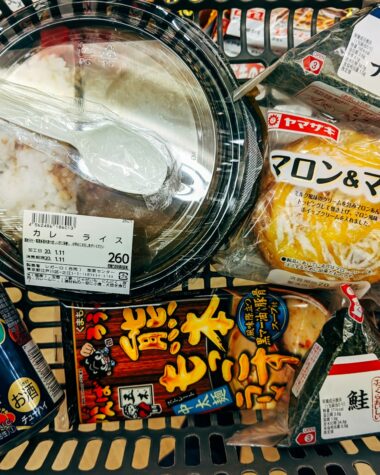Living within a budget doesn’t have to mean living without happiness. Too often, people equate saving money with cutting out everything they enjoy, but this mindset can make financial discipline feel like punishment rather than empowerment. In reality, a thoughtful approach to spending can preserve what truly matters while still achieving financial stability. The key lies in identifying what brings real value to your life and making conscious decisions that reflect those priorities.
Budgeting is not about restriction—it’s about intentional living. When you control where your money goes, you gain freedom rather than lose it. This article explores strategies to stretch a budget while maintaining a fulfilling, joyful lifestyle, proving that simplicity and happiness often go hand in hand.
1. Redefining What Joy Means to You
Focusing on True Value Instead of Impulse
Many people overspend because they confuse short-term excitement with lasting joy. A spontaneous purchase may feel good in the moment, but often fades quickly. On the other hand, experiences, meaningful relationships, and personal growth provide a deeper sense of satisfaction. Start by listing what genuinely makes you happy—such as family activities, learning new skills, or connecting with nature. Prioritizing these areas ensures that your budget supports authentic happiness rather than fleeting indulgences.
Quality Over Quantity
A common misconception is that more equals better. Buying fewer but higher-quality items—like durable clothing, well-made kitchen tools, or thoughtfully chosen gifts—can be more satisfying than filling your home with cheap, disposable things. This approach often saves money in the long run and aligns with a simpler, more intentional lifestyle.
2. Making the Most of What You Already Have
The Art of Using What’s Available
Before spending, look around at what you already own. Many people overlook treasures sitting unused in their homes—ingredients in the pantry, books on the shelf, or tools tucked away in the garage. Challenge yourself to prepare meals from what’s on hand, read books you’ve never opened, or repurpose items creatively. This habit reduces waste and saves money while fostering gratitude for what you already have.
Repair, Don’t Replace
In today’s culture of convenience, it’s tempting to throw away items at the first sign of wear. Learning basic repair skills—sewing a button, fixing a loose hinge, or mending a torn seam—not only extends the life of your belongings but also builds a sense of accomplishment. Communities often offer free or low-cost workshops for such skills, making it accessible to everyone.
3. Smart Spending Without Guilt
Planned Indulgence
Joyful living includes occasional treats, but spontaneous spending can derail your budget. Allocate a small, dedicated amount each month for guilt-free enjoyment—be it a family outing, a special meal, or a hobby-related purchase. By planning these moments, you avoid impulsive overspending while still savoring life’s pleasures.
The Power of Comparison and Timing
Before making purchases, take a moment to compare prices, read reviews, and consider timing. Seasonal sales, local markets, or community swaps can often provide what you need at a fraction of the cost. Patience in buying can transform big expenses into manageable, joyful investments.
4. Building Joyful Experiences That Cost Little or Nothing
Rediscovering Simple Pleasures
Many of life’s best experiences are free or nearly free: a walk in the park, cooking a family meal together, or stargazing on a clear night. These moments build connection and memories without draining your finances. Cultivating appreciation for simplicity not only saves money but also deepens your sense of fulfillment.
Community and Shared Resources
Joining community initiatives—such as book exchanges, gardening clubs, or group activities—can enrich your life without high costs. Shared experiences often bring more joy than solitary consumption and create networks of support that are invaluable beyond money.
5. Mindset Shifts for Lasting Change
Contentment Over Comparison
Constantly comparing your life to others fuels dissatisfaction and overspending. Social media often portrays an illusion of constant luxury, but true contentment comes from focusing on your own journey. Practicing gratitude daily for what you have—whether through journaling or reflection—shifts focus from what’s missing to what’s meaningful.
Viewing Budgeting as Empowerment
Budgeting isn’t a limitation; it’s a tool to take control of your life. When you see each saved amount as a step toward a larger goal—such as financial independence, family security, or personal dreams—it becomes a source of pride rather than frustration.
6. What NOT to Do When Trying to Save
Extreme Deprivation
Cutting out all enjoyment to save faster often backfires. It leads to burnout, frustration, and eventually overspending as a form of rebellion. A sustainable budget balances responsibility with joy, making it easier to maintain long term.
Chasing Every “Deal”
Buying things just because they’re discounted is still overspending if you don’t need them. Sales should serve your goals, not create new unnecessary expenses. Avoid the trap of mistaking discounts for savings when they don’t align with your priorities.
7. Long-Term Rewards of Joyful Budgeting
Financial Security Without Emotional Sacrifice
By aligning your spending with your values, you gain financial stability without feeling deprived. This security reduces stress, improves relationships, and allows you to enjoy life more fully.
A Lifestyle That Reflects Who You Are
Ultimately, a budget that supports joy creates a lifestyle rooted in purpose and meaning. Instead of chasing every new trend, you live in a way that’s authentic to you—something money alone can’t buy.
Conclusion
Stretching a budget while keeping joy intact is about shifting from impulsive, consumption-driven habits to intentional, value-based living. When you focus on what truly matters, make the most of what you already have, and plan for meaningful experiences, saving money becomes a source of freedom rather than sacrifice.
Financial discipline, when done thoughtfully, empowers you to enjoy life deeply without excess or regret. It’s proof that happiness doesn’t come from how much you spend, but from how wisely and purposefully you choose to live.








